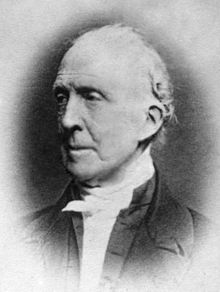| Online: | |
| Visits: | |
| Stories: |

| Story Views | |
| Now: | |
| Last Hour: | |
| Last 24 Hours: | |
| Total: | |
Secession Doctrine Taught by New Englanders
Wednesday, October 15, 2014 12:20
% of readers think this story is Fact. Add your two cents.

Josiah Quincy III
Historically the Democratic party, created in 1792 as a Southern reaction to Northern control of the federal government, was so successful that every major political party since has been a reaction to it. The Federalists of New England, once unseated in 1800, reacted by formulating plans to secede from the union.
Bernhard Thuersam, Chairman
North Carolina War Between the States Sesquicentennial Commission
“Unsurpassed Valor, Courage and Devotion to Liberty”
“The Official Website of the North Carolina WBTS Sesquicentennial”
Secession Doctrine Taught by New Englanders
“The final political phenomenon to arise out of the North-South competition of the 1790s was the doctrine of Secession. It represented the death rattle of the Federalist party.
The pivotal year was 1800 when the Democratic leaders [Thomas] Jefferson and [Aaron] Burr succeeded in putting together a coalition of the have-nots of the country – the agriculturalists of the South and the proletarians of the Northern cities. They won control of the nation. They took the Senate with eighteen seats to fourteen Federalist, and the House with sixty-nine seats to thirty-six Federalist.
They took the presidency by an equally comfortable margin, although the quirks of the Electoral College arrangement caused Jefferson and his vice presidential candidate Burr to receive an equal number of electoral votes for President. The Federalist party survived another sixteen years, although it would never again won control the House, Senate, or presidency.
It did not take defeat well. Barely three years after the Democratic rout, Northern Federalists began arguing for the secession of the New England States from the Union. It would be their sullen tom-tom call, a summons to defect, until they passed from the national scene in 1816.
There was nothing understated about their secessionist position. It was widespread, and if it could not be done peaceably, they said, it should be done violently.
Listen to one of the many secessionists, Josiah Quincy III, scion of the New England Quincy’s, future mayor of Boston and future president of Harvard University. In 1811 he was a thirty-eight year-old congressman standing opposed to the admission of Louisiana as a State.
“It is my deliberate opinion,” he said, “that if this bill passes, the bonds of this union are virtually dissolved, that the States which compose it are free from their moral obligations, and that as it will be the right of all, so it will be the duty of some to prepare, definitely, for a separation; amicably if they can; violently if they must.”
One man who listened carefully that year was a freshman congressman from South Carolina. He was John C. Calhoun, who had been taught the secessionist doctrine in the law schools of New England, who had listened to it in the Congress, and who would one day carry it back down South . . .
Meanwhile, it is an unfair strike that history has identified the South with secession when in fact the earliest and clearest argument against it were proposed by Jefferson and Madison [, both Southerners]. The creators of secession doctrine, and the teachers of it from 1800 to 1817, were New England Federalists.”
(The Natural Superiority of Southern Politicians, A Revisionist History, David Leon Chandler, Doubleday, 1977, pp. 115-116)
Source: http://freenorthcarolina.blogspot.com/2014/10/secession-doctrine-taught-by-new.html



